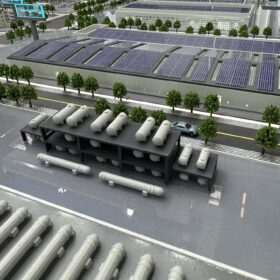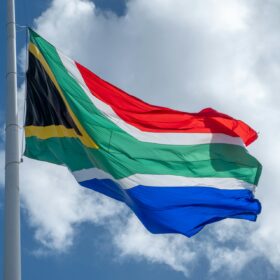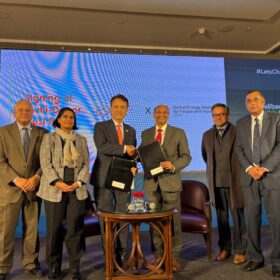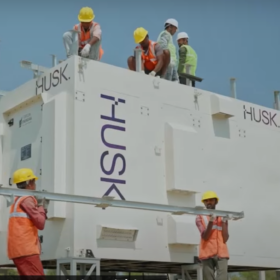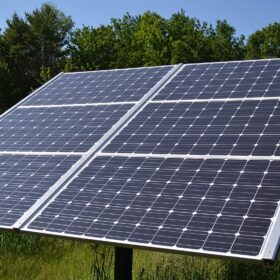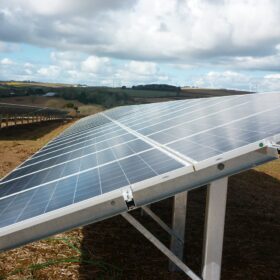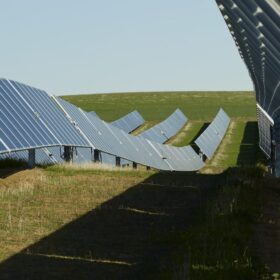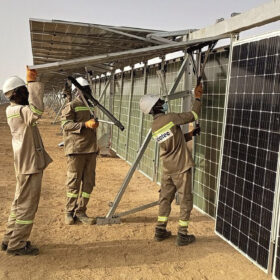Green hydrogen remains ‘prohibitively’ expensive in Africa
A European research team has assessed the levelized cost of hydrogen across 31 African countries and has concluded that importing green hydrogen from Africa to European is economically unfeasible by 2030, with prices ranging from $10.2/kg to $3.8/kg.
South Africa targeting up to 5 GW of new renewables per year
The South African Renewable Energy Master Plan (SAREM) aims to deploy at least 3 GW of new renewables per year, increasing to 5 GW by 2030, while creating 25,000 jobs in the country’s renewable energy and storage sectors.
GEAPP joins ISA’s multi-donor trust fund initiative to mobilize $100 million solar finance
The Global Energy Alliance for People and Planet (GEAPP) has strengthened its partnership with International Solar Alliance (ISA) by signing ISA’s Multi-Donor Trust Fund, which aims to mobilize $100 million to fund high-impact solar energy projects.
Husk hits 400 solar minigrids milestone
Husk Power Systems has doubled its fleet of community solar minigrids over the past 12 months. It now owns and operates the world’s largest portfolio of private-sector minigrids.
Husk Power launches ‘minigrid in a box’ solution
With its containerized solution Prism, Husk Power Systems is now able to deploy minigrids at a rate of one per day with the same resources.
AfDB identifies key priorities for minigrid deployment in Africa
An African Development Bank (AfDB) report covering critical takeaways from the ARE Energy Access Investment Forum 2023 says that challenges in financing, policy, technology, and skills enhancement must be overcome to support the deployment of distributed renewable energy minigrids across Africa.
Africa’s annual PV additions hit 3.7 GW in 2023
According to new figures from the Africa Solar Industry Association (AFSIA), the continent’s cumulative installed PV capacity reached 16 GW at the end of December, based on 3.7 GW of new annual installations.
Nextracker hits 10 GW milestone in Middle East, Africa, and India solar power markets
Nextracker’s smart solar trackers are now either operational or under fulfillment for 10 GW of PV projects located in the Middle East, Africa, and India.
Install grid-connected solar, rinse, repeat
Will a redeployable solar and energy storage solution be the answer to unreliable grid electricity across much of Africa, as its developer proposes? Or will it merely be a temporary solution that will see cash-strapped utilities kick the can of universal energy access further down the road?
US, China dominate solar investment
China and the USA have been consistently attracting the most annual solar investments. Together, these have received about 50% of all solar investments since 2015, according to a new report released by the International Solar Alliance at its sixth assembly in New Delhi.
